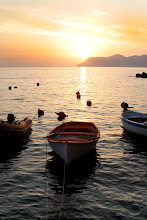when traveling and trying to save every penny possible.

Under-tipping and over-tipping can both be considered offensive depending on what country you are in. The main rule to stick with when in doubt is never tip for bar/counter service, and add about 10 percent for a sit-down restaurant. Servers in Europe make a paycheck and tips are considered a small "bonus" — to reward great service, or to simply round the total bill to a convenient number. In most countries, 5 to 10 percent is adequate and 15 or 20 percent is unheard of.
We'll focus on Great Britain as an example since we've lived and worked there and understand their tipping customs best (this will also roll over into Ireland as well). Most pubs have zero table service, meaning customers should pick any table they wish and order food and drinks from the bar. Drinks will come immediately and food will be brought to the table a few minutes later. The waiter who brings the food rarely asks if you want refills or need anything else and will probably not come back to check on you. You do not need to tip in pubs. Even if you've been sitting at the same bar stool for five hours and spent $50, you don't need to tip - although it is courteous to offer to buy the barman or barmaid a drink. Krystin can attest to this, as she was a barmaid for a few months in England. Initially, she was shocked to find that people waited to get 5 or 10 cents back when ordering a drink. That being said, some people did tip a pound or two which was always appreciated, and usually came when the person realized she was an American working in a British pub.
Sit-down restaurants are entirely different. Tipping is completely up to the patron. If a server greets you, brings drinks and food, comes back to check on you and takes money, you can give as little or as much as you wish. Scott worked at a posh hotel and tips varied from nil (zero) up to a fiver (slang in Britain for a five pound note). 10 percent is customary for very good service, but most people usually give a pound or two per diner. Since tips in the United Kingdom suck, just know that most service also will. Again, this entirely depends on the establishment.

In any country, especially France (since service is included by law), your bill may state "service compris" to indicate that service is indeed included in the total price. In any case, it is polite to round up the bill to the nearest Euro. Look on the menu or your bill to see if a tip/gratuity is included (it's usually easy to tell; "servizio incluso" in Italian, for example). If so, there is no need to tip on top of this. If you are traveling in a group of six or more, some restaurants will add this to ensure a tip for the hard work of the server.
In Greece, a service charge is automatically included in your bill when eating out, but this does not necessarily mean that it will go to the servers. If you're happy with your service, a tip of 8-10 percent is customary. Also, be aware that during the Christmas and Greek Easter holidays, a service bonus of 18 percent will be added to your restaurant bill as a holiday extra for the servers.
In Germany, a service charge is included (appearing on your bill as "Bedienung"), but it is normal to tip an extra 5-10 percent if service was very good. When paying and handing over the money, a very German thing to do is tell the waiter the amount they should keep. For instance, if the bill is 42 Euro, you give him 50, say to the waiter "45," and he'll bring back five in change. If you hand over 50 Euros and say "danke," the waiter might think you gave him the rest as a tip.
 TAXI!
TAXI!When riding in a taxi anywhere in Europe (which we don't recommend because it's expensive and public transport - or walking - is always cheaper), simply round the amount up to the next Euro. Of course, it's important to be very clear with the driver about where you want to go to ensure that you don't get ripped off even more Euros by taking the scenic route and being over-charged for your journey.
If you can afford to stay in hotels (we have done this all of once in Paris, because it was the same price as the hostels available), tipping bellboys and maid staff is up to you. In the U.S., our dollars are paper bills so handing a handful of cash to someone could still only really be $4. Scott always feels like he is being cheap in Europe handing over a few coins, which is also $4, but you just can't let it bother you. Tips are a bonus for staff even though many will expect them.
In busy touristy areas, it is best not to leave money on the table but instead to hand it to your waiter. When paying with a credit card, it is best to leave a cash tip so it ensures the money goes directly into the waiter's pocket.
Also, be aware that many "fast food"-looking places will offer indoor dining and carry-out, and there will be different prices for both. The prices should be next to each other on the menu board; the more expensive price is to sit down and the cheaper is to take the food with you and find a beautiful park to eat in. The difference will normally be .50 to 1 Euro per item, but every penny counts when you are backpacking on a budget.
















Awesome! Thanks for the advice! :) Any good Pubs in London you could recommend?
ReplyDeleteOur good friend Andrew lives in London and he has been more than happy to share some of his pub knowledge with us.
ReplyDelete"My knowledge of pubs in London is somewhat limited to the West, as that's where I live, I'm afraid! There are a few that are worth noting though:
The World's End pub, Camden - really big, spacious place - a bit like an Aladdin's cave.
Near Koko and Forum music venues, so good for gigs and things. Reasonably cheap too. Very different pub.
Scarsdale Arms (I think?) - old school pub off Kensington High Street, very pretty in summer, good food, good beer, on a nice Kensington square.
Fitzroy Tavern, Charlotte Street - again, quite an old school pub, but very popular with locals. Good, cheap beer on tap and very central.
The Cow, Westbourne Park Road - Guinness/oyster bar - really cool, retro feel. Very chilled out, perhaps a celeb spot in there too (but don't worry, not expensive - just the area!)
The Book Club, Shoreditch - more of a venue, than a bar, but pretty good nonetheless. They often have cool talks, nights going on. Bit more for your intellectual drinker!
Churchill Arms, Kensington Church Street - really cool facade, full of hanging baskets. Very renowned - good beer.
There's a pub next to the Fuller's Brewery (London Pride) in Chiswick, the name of which escapes me. It's really good though - it's on the river, very pretty, good atmosphere and obviously being next to the brewery, it has good beer on tap.
Those are the ones that I can think off of the top of my head. Sorry they're all a bit West-centric - as I say, that's where I live and frequent! If you need more info on them, just look them up online and I'm sure there'll be a bit about each of them."
I hope this helps everyone out on some London pub destinations.